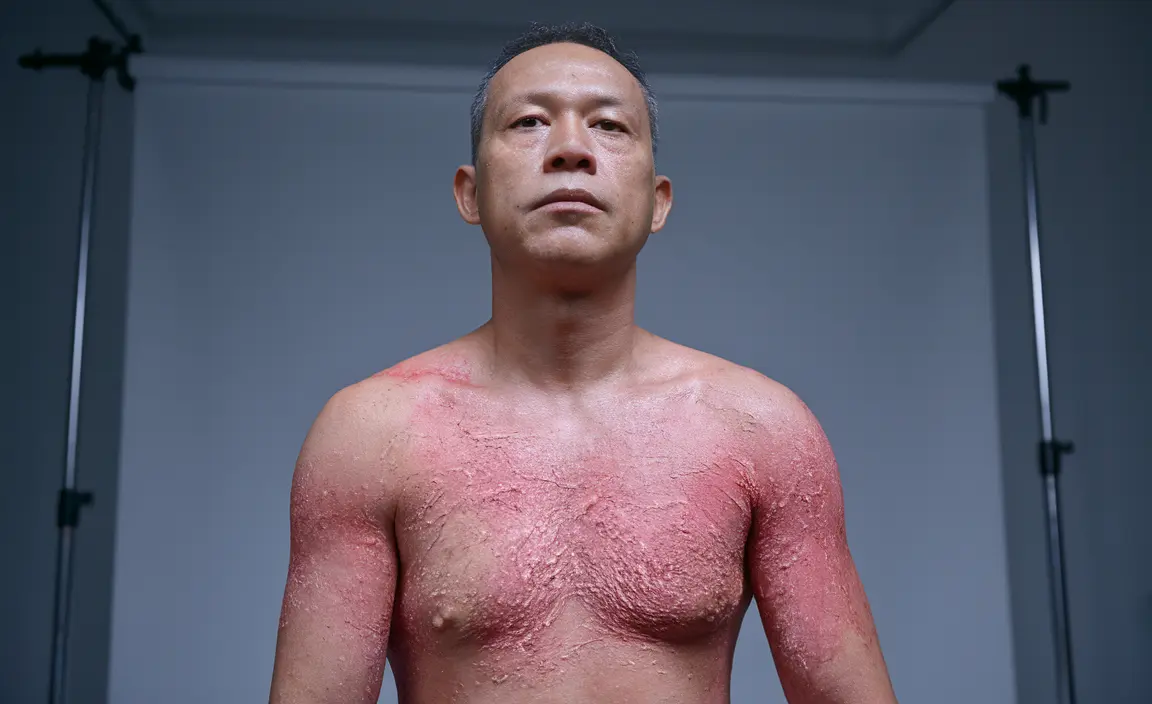While roseola is commonly associated with infants and young children, this viral infection can also affect adults. Understanding roseola in adults is crucial, as its presentation and implications can differ significantly from childhood cases. This comprehensive guide explores everything you need to know about adult roseola infections, including symptoms, treatment options, and potential complications.
Understanding Roseola in Adults
Roseola, also known as sixth disease or roseola infantum, is caused by human herpesvirus 6 (HHV-6) or, less commonly, human herpesvirus 7 (HHV-7). While most people develop immunity during childhood, adults who haven't been previously exposed can contract the virus, and those with weakened immune systems may experience reactivation of a dormant infection.
Adult Roseola Symptoms
The symptoms of roseola in adults can be more subtle or different from those seen in children. Common signs include:
- Sudden high fever (often 103°F or higher)
- Fatigue and general malaise
- Mild respiratory symptoms
- Enlarged lymph nodes
- Characteristic rose-pink rash (appearing as fever subsides)
- Headache
- Muscle aches
The rash typically appears on the trunk and spreads to the arms and neck, lasting anywhere from a few hours to several days. Unlike in children, adult cases may present with more pronounced systemic symptoms and longer recovery periods.
Diagnosis and Medical Evaluation
Diagnosing roseola in adults can be challenging due to its similarity to other viral infections. Healthcare providers typically:
- Conduct a thorough physical examination
- Review medical history and symptoms
- Perform blood tests to confirm viral presence
- Rule out other potential conditions
Treatment Approaches
While there's no specific antiviral treatment for roseola, management focuses on symptom relief:
- Rest and adequate hydration
- Over-the-counter fever reducers
- Anti-inflammatory medications for discomfort
- Monitoring for potential complications
- Supporting immune function
Prevention and Transmission
Roseola spreads through respiratory droplets and close personal contact. Adults can reduce transmission risk by:
- Practicing good hand hygiene
- Avoiding close contact with infected individuals
- Maintaining a healthy immune system
- Following isolation protocols when infected
Special Considerations for Immunocompromised Adults
Adults with weakened immune systems face higher risks from roseola infection. They may experience:
- More severe symptoms
- Longer recovery periods
- Higher risk of complications
- Potential viral reactivation
- Need for closer medical monitoring
Frequently Asked Questions
Can adults get roseola even if they never had it as children?
Yes, adults who haven't developed immunity through previous exposure can contract roseola. While less common than childhood cases, adult infections do occur, particularly in those who haven't been exposed to the virus earlier in life.
What are the common symptoms of roseola in adults and how do they differ from children?
Adult roseola symptoms often include high fever, fatigue, headache, and a distinctive rash. Unlike children, adults may experience more severe systemic symptoms, longer recovery times, and more pronounced muscle aches and fatigue.
How is roseola in adults diagnosed and treated, especially if symptoms are mild?
Diagnosis typically involves physical examination and symptom evaluation. Treatment focuses on managing symptoms through rest, hydration, and over-the-counter medications. Even mild cases should be monitored to prevent complications.
Is roseola contagious in adults, and how long does the infection remain contagious?
Yes, roseola is contagious in adults through respiratory droplets and close contact. The contagious period typically begins before symptoms appear and continues until the fever resolves, usually lasting about a week.
What complications can roseola cause in adults, particularly those with weakened immune systems?
Adults with compromised immune systems may experience more severe complications, including prolonged fever, encephalitis in rare cases, and potential viral reactivation. These individuals require careful monitoring and may need more aggressive supportive care.




